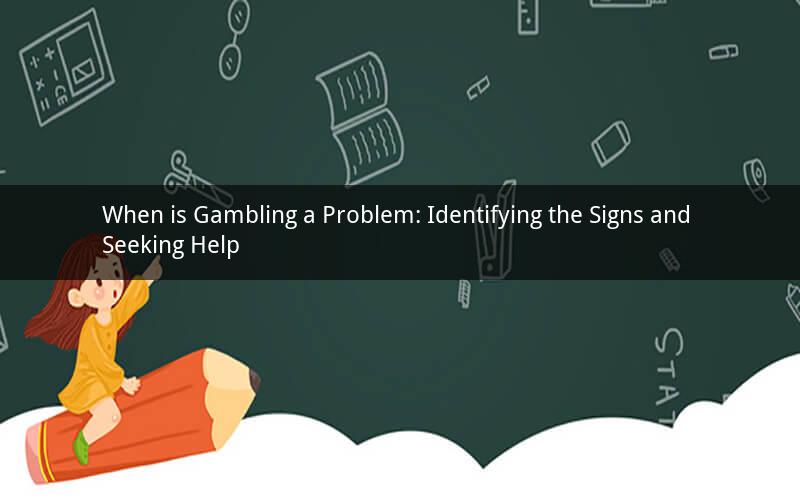
Gambling has long been a source of entertainment and excitement for millions of people worldwide. However, when it begins to take control of one's life, it can quickly transform into a harmful addiction. Identifying when gambling becomes a problem is crucial in order to seek help and prevent further negative consequences. This article explores the signs of problematic gambling, its impact on individuals and society, and the steps to take towards recovery.
The Signs of Problematic Gambling
Problematic gambling, often referred to as gambling disorder, is characterized by an inability to control or stop gambling, despite negative consequences. The following signs can help identify when gambling has become a problem:
1. Loss of Control: The inability to control the amount of time or money spent on gambling.
2. Compulsive Behavior: A persistent urge to gamble, despite negative consequences.
3. Lying or Hiding: Lying to family, friends, or others about the extent of gambling activities.
4. Financial Struggles: Falling into debt, losing significant amounts of money, or struggling to meet financial obligations due to gambling.
5. Neglecting Responsibilities: Neglecting work, family, or personal responsibilities due to gambling.
6. Risking Relationships: Straining or losing relationships due to gambling.
7. Legal Issues: Engaging in illegal activities to fund gambling, or facing legal consequences due to gambling.
8. Withdrawal Symptoms: Experiencing physical or psychological symptoms when trying to stop gambling, such as anxiety, irritability, or depression.
Recognizing these signs can help individuals and their loved ones determine whether gambling has become a problem.
The Impact of Problematic Gambling
Problematic gambling can have far-reaching consequences for individuals, families, and society. Some of the most significant impacts include:
1. Financial Loss: Problematic gamblers often experience significant financial losses, leading to debt, bankruptcy, and other financial struggles.
2. Mental Health Issues: Problematic gambling is associated with various mental health issues, such as depression, anxiety, and substance abuse.
3. Physical Health Problems: Problematic gamblers may experience physical health problems, including sleep disorders, heart disease, and high blood pressure.
4. Relationship Damage: Problematic gambling can strain or damage relationships with family, friends, and loved ones.
5. Suicide Risk: Individuals struggling with problematic gambling have an increased risk of suicide.
Addressing the impact of problematic gambling is essential to protect the well-being of individuals and society.
Seeking Help for Problematic Gambling
If you or someone you know is struggling with problematic gambling, seeking help is the first step towards recovery. Here are some options for seeking assistance:
1. Professional Help: Therapists, counselors, and addiction specialists can provide personalized treatment for problematic gambling.
2. Support Groups: Organizations like Gamblers Anonymous offer support groups where individuals can share their experiences and receive encouragement from others who have faced similar challenges.
3. Treatment Programs: Inpatient or outpatient treatment programs can provide comprehensive support for individuals struggling with problematic gambling.
4. Financial Counseling: Financial counseling can help individuals address the financial consequences of problematic gambling and develop a plan for financial stability.
5. Legal Assistance: In some cases, individuals may require legal assistance to resolve issues related to problematic gambling.
Taking the initiative to seek help is an important step towards overcoming problematic gambling.
Questions and Answers
1. Q: How can I tell if my gambling is becoming a problem?
A: Look for signs such as losing control, lying about gambling, experiencing financial difficulties, or neglecting responsibilities.
2. Q: What are some of the consequences of problematic gambling?
A: Consequences may include financial loss, mental health issues, physical health problems, relationship damage, and an increased risk of suicide.
3. Q: Where can I find support for problematic gambling?
A: Seek help from therapists, counselors, support groups like Gamblers Anonymous, treatment programs, financial counseling, and legal assistance.
4. Q: Is it possible to overcome problematic gambling?
A: Yes, it is possible to overcome problematic gambling with the right support and resources.
5. Q: How can I help a loved one who is struggling with problematic gambling?
A: Encourage them to seek help, provide support and understanding, and be patient throughout the recovery process.